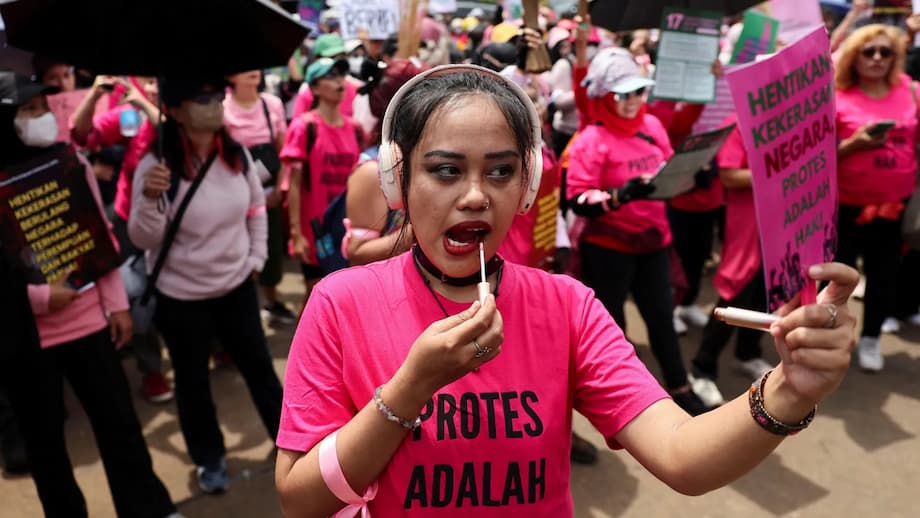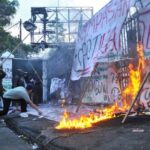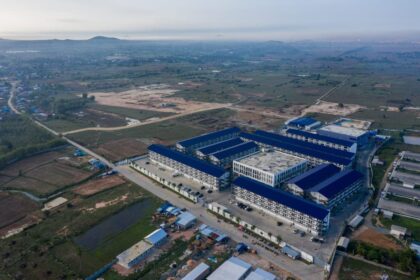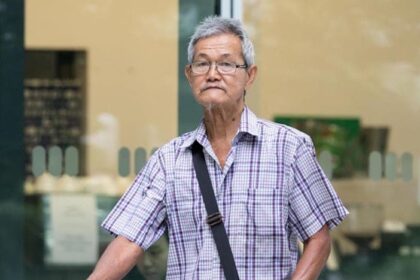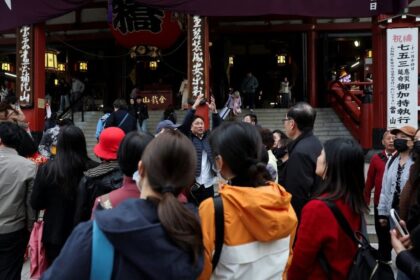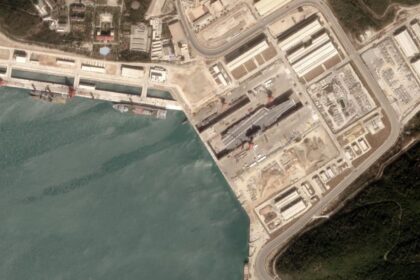Why women are marching with brooms in Jakarta
Women in bright pink shirts, many holding broomsticks aloft, have taken center stage in Indonesia’s largest street protests in years. They gathered outside parliament in Jakarta and in cities across the country to demand accountability for police abuses, cuts to political privileges, and a stronger focus on the hardships facing ordinary families. Their presence has given the unrest a distinctive look and a clear message: sweep out corruption and end heavy handed policing. The movement swelled after a young motorcycle taxi driver, Affan Kurniawan, died when he was run over by a police vehicle, a case that lit a fuse under wider anger over rising living costs and the perception that politicians enjoy excessive perks.
- Why women are marching with brooms in Jakarta
- How the demonstrations grew and why tensions rose
- What protesters say they want
- Who is organizing the women on the front line
- Symbols of brave pink and hero green
- Government and parliament under pressure
- Calls for accountability at home and abroad
- Indonesia’s long struggle with police reform
- Economic pressures fueling outrage
- What happens next for the movement
- Key Points
The protests, now into a second week, are organized by a broad coalition that includes the Indonesian Women’s Alliance, student unions, labor groups, and human rights advocates. Pink has been adopted by many women as a symbol of bravery, while green, the color of Affan’s rideshare uniform, has become a rallying shade of solidarity. On social media, supporters share “brave pink” and “hero green” filters to signal support for the crowds on the streets. Calls for police reform echo through the demonstrations, along with demands for a rollback of benefits for lawmakers and more transparent governance.
How the demonstrations grew and why tensions rose
What began as focused marches in Jakarta rapidly spread nationwide after Affan’s death. Student groups and workers joined large gatherings, with many rallies remaining peaceful but some marred by clashes, property damage, and scattered looting. Rights organizations say police used tear gas and rubber bullets in several confrontations. The Indonesian Legal Aid Foundation reported at least 10 deaths linked to the unrest since late August and more than 1,000 people treated in hospitals. Those figures, shared by advocates, have intensified pressure on the authorities to change tactics and pursue an independent review of alleged abuses.
President Prabowo Subianto pledged to hold firm against violent mobs and said elements of the unrest bore signs of terrorism and treason. That rhetoric, together with images of armored vehicles and riot shields, has unsettled many Indonesians who remember the harsh policing of the late 1990s. Protest leaders insist the core of the movement is peaceful and democratic. One participant in Jakarta, 30 year old Rizky Ananda, said the marches aim to show the country that dissent can be orderly and lawful.
We want to show that protests are mostly peaceful. If the government said protests were treasonous, it should be questioned.
The confrontation over policing is bound up with a broader debate about fairness in public life. Many citizens say they are working harder to pay for basic needs while elected officials enjoy allowances and privileges that appear out of step with the economic mood. That perception has energized the street movement’s demand for more humble politics.
What protesters say they want
Speakers at rallies and statements from civil society groups outline a set of concrete goals. They argue that a handful of changes would show a serious response to public concerns and reduce the risk of further violence. Their demands vary across groups, but they commonly include the following priorities:
- Independent investigations into alleged police abuses during the protests and accountability for any unlawful use of force
- Reduction or suspension of special allowances and benefits for members of parliament, with full transparency on public spending
- Release of detained peaceful protesters and a credible review of charges linked to treason or terrorism
- Dialogue channels between lawmakers and civil society to address cost of living pressures
- Policy shifts that support ordinary citizens, including fair access to education, more predictable agricultural support, and decent job opportunities
Student unions have pressed for clear timelines, not just public promises. Several leaders say the way police handled the unrest must be assessed by an independent body, and that parliament should publish a detailed plan for reform of its own spending practices.
Who is organizing the women on the front line
The women with brooms are organized largely under the Indonesian Women’s Alliance, known by its Indonesian initials IWA. The alliance says it comprises about 90 women’s organizations, community movements, labor unions, indigenous groups, and human rights advocates. This wide coalition has tapped into a long tradition of women’s leadership in Indonesian protest history, including during the 1998 reform movement that toppled Suharto’s authoritarian rule. By choosing a household tool as the primary symbol, organizers aim to send a message that everyday people can clean up the state and claim a more just system.
At the Jakarta rally, IWA members carried signs that read “reform the police.” One organizer, Mutiara Ika, said the demonstrations assert a basic right.
Protests are not crimes, but rather democratic rights inherent in every citizen.
Women in the crowd also spoke about the dual purpose of their presence. They want safer streets, with policing that respects lawful assembly, and they want officials to confront the rising costs that hit families the hardest. The broom, they say, is a reminder that citizens have the power to sweep away practices that serve elites at the expense of the public.
Symbols of brave pink and hero green
Colors and humor have long played a part in Indonesian activism, and this wave is no different. Pink carries the meaning of courage for many of the women leading the marches, while green honors the young rider whose death helped ignite the protests. The pairing has spread online, where profile images and posters adopt the two tones. On the streets, hand painted placards mix sharp critique with satire. One sign spotted near parliament read, “your sweet promises cause diabetes,” a barbed message that calls out campaign pledges that voters feel were quickly forgotten.
Broomsticks add a second layer of symbolism. They are common tools in households across Indonesia, and in this context they suggest a clean out of corruption, militarism, and repressive policing. The image is vivid and instantly recognizable, which helps unite different groups behind a shared theme even as they carry varied agendas, from student rights to labor protections to the defense of civil liberties.
Government and parliament under pressure
Political leaders have scrambled to respond. President Prabowo initially signaled he would cancel a trip to Beijing for a massive military parade as police confronted crowds at home. He then flew to China, joining a group photograph with Xi Jinping and Vladimir Putin. Before departing, he announced that his administration would rein in some perks for lawmakers, a step that aligns with one of the movement’s central demands. The shift underscored a balancing act between projecting stability abroad and addressing discontent at home.
The president’s shifting stance
As a former general, Prabowo framed part of the unrest as a security threat, warning that the state would stand firm against violence. At the same time, he has nodded to public pressure by promising to curtail politicians’ allowances. Public trust will hinge on whether these pledges produce specific changes and whether the state shows openness to independent scrutiny of police conduct during the protests.
Parliament’s response so far
Deputy speakers have met student unions, with early signals that lawmakers will evaluate their benefits, put a moratorium on overseas trips, and take steps to improve transparency. Student representatives say lawmakers should go further and deliver a firm schedule for publishing spending details and for examining allegations of excessive force by police. Agus Setiawan, who leads the University of Indonesia student body, voiced frustration about how citizens feel treated once votes are counted.
It is as if they take advantage of us in every election. After they won, we were forgotten.
Herianto, a former central coordinator for a national student union, said any changes that only touch the surface will fall short of what people expect. He argued that the public is looking for reforms that have a direct impact on daily life.
Symbolic changes are important, but people expect deeper reforms, particularly in areas that affect ordinary citizens such as agricultural policy, education and fair economic opportunities.
Whether parliament can sustain a credible reform program will become a key measure of the political class’s willingness to respond to this wave of dissent.
Calls for accountability at home and abroad
International and domestic watchdogs have urged a transparent response to allegations of abuse. The Office of the United Nations High Commissioner for Human Rights has called for prompt and thorough investigations into how the protests were handled by security forces. Amnesty International Indonesia echoed that call, warning of further harm if grievances go unanswered. Its executive director, Usman Hamid, delivered a direct appeal to the authorities.
The state must immediately meet all the demands of the people during the demonstrations before further casualties occur.
Indonesia’s National Human Rights Commission, known as Komnas HAM, said the continuing volatility is worrying and linked to a lack of real space for dialogue. The commission’s chair, Anis Hidayah, described how people feel shut out in practice even when avenues for complaints appear to exist on paper.
These actions are the result of a very limited space for dialogue. When people want to express their problems and difficulties, the space seems to be available but not easily accessible.
Financial analysts are also watching the fallout. Fitch Ratings cautioned that prolonged unrest could weigh on growth or push the government toward spending that strains the budget, potentially affecting the country’s credit profile. The ratings note reflects how domestic tensions can ripple into international perceptions of economic stability.
Indonesia’s long struggle with police reform
Debates over policing in Indonesia stretch back to the late 1990s. After the fall of Suharto, the police were formally separated from the military in 1999, a landmark change meant to build a civilian force with a public service mission. The country has made strides since then, including stronger legal frameworks and more training on community engagement. Yet memories of heavy handed responses to unrest have not faded, and several episodes over the past two decades have reinforced widespread worry about impunity for misconduct.
Oversight bodies and legal standards
Indonesia has multiple institutions that can examine abuses. Komnas HAM has authority to investigate human rights violations and make recommendations to the government and prosecutors. An advisory body, Kompolnas, can review police policy and performance and advise the president. Courts can adjudicate criminal cases and civil suits tied to unlawful force. These mechanisms are significant, but they depend on access to evidence, genuine cooperation by the police, and political will to act on findings.
What reform could look like
Experts and activists often propose steps that are practical and measurable. These include independent review teams for protest incidents, prompt publication of use of force rules, body cameras during crowd control operations, better training on de escalation, command accountability for on the ground decisions, and credible compensation for victims of proven abuses. Publishing data on arrests, charges, injuries, and disciplinary outcomes could help rebuild trust. A pathway for peaceful assembly, with clear rules communicated in advance, would reduce confrontation and protect the right to protest.
Economic pressures fueling outrage
Behind the slogans lie daily worries about the price of food, transport, and household bills. Many workers say wages have not kept pace with expenses. Students point to higher tuition and limited job prospects. Families feel squeezed by higher costs while seeing reports about state funded perks for politicians. That contrast has sharpened the sense that public money is not being managed with care. The call to cut allowances, suspend overseas trips for lawmakers, and disclose spending has become a focal point because it speaks to fairness as well as fiscal prudence.
How the government addresses cost pressures will influence the mood on the streets. Policy options range from targeted social support to steps that ease supply bottlenecks for essential goods. Protest leaders want any relief measured against outcomes, not only announced in speeches. That insistence reflects a wider desire for institutions that can be held to account, whether in budgeting, policing, or the treatment of dissent.
What happens next for the movement
Organizers say rallies will continue until they see firm commitments. Student unions are preparing to present their demands directly to government representatives. Parliament has signaled a review of benefits and a temporary halt to overseas travel. Watchdogs want an independent probe into the conduct of security forces, along with timely publication of findings. The next period will test whether a negotiated path is possible. Violence has eased in some areas, yet confidence will depend on actions that match public expectations for fairness and safety.
For now, brave pink and hero green remain the colors of a movement that insists citizens have a right to gather, speak, and be heard. The brooms say the public intends to sweep out practices that weaken trust. The question for Indonesia’s leaders is whether they will move quickly enough to convince people that real change is underway.
Key Points
- Women in pink carrying broomsticks led marches to Indonesia’s parliament to protest police abuses and political perks
- Protests entered a second week nationwide after the death of motorcycle taxi driver Affan Kurniawan in a police vehicle incident
- Rights groups report at least 10 deaths and more than 1,000 hospitalizations linked to unrest
- President Prabowo announced plans to reduce some benefits for lawmakers and attended a military parade in China
- Parliament leaders pledged to evaluate benefits, pause overseas trips, and improve transparency after meeting student unions
- UN human rights officials called for prompt and transparent investigations into alleged abuses
- Amnesty International Indonesia urged authorities to meet public demands to prevent further casualties
- Komnas HAM warned of limited space for dialogue and urged steps to reduce violence by authorities
- Protesters’ demands include police reform, budget transparency, release of peaceful detainees, and policies that ease cost of living pressures
- Fitch Ratings warned that prolonged unrest could affect growth and the sovereign credit profile if policy responses strain the budget


